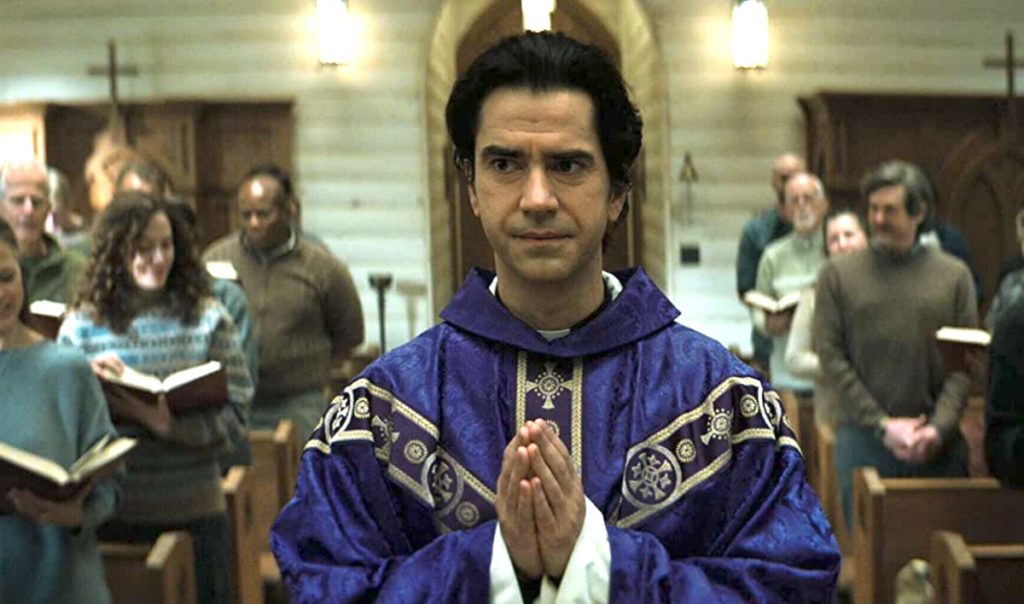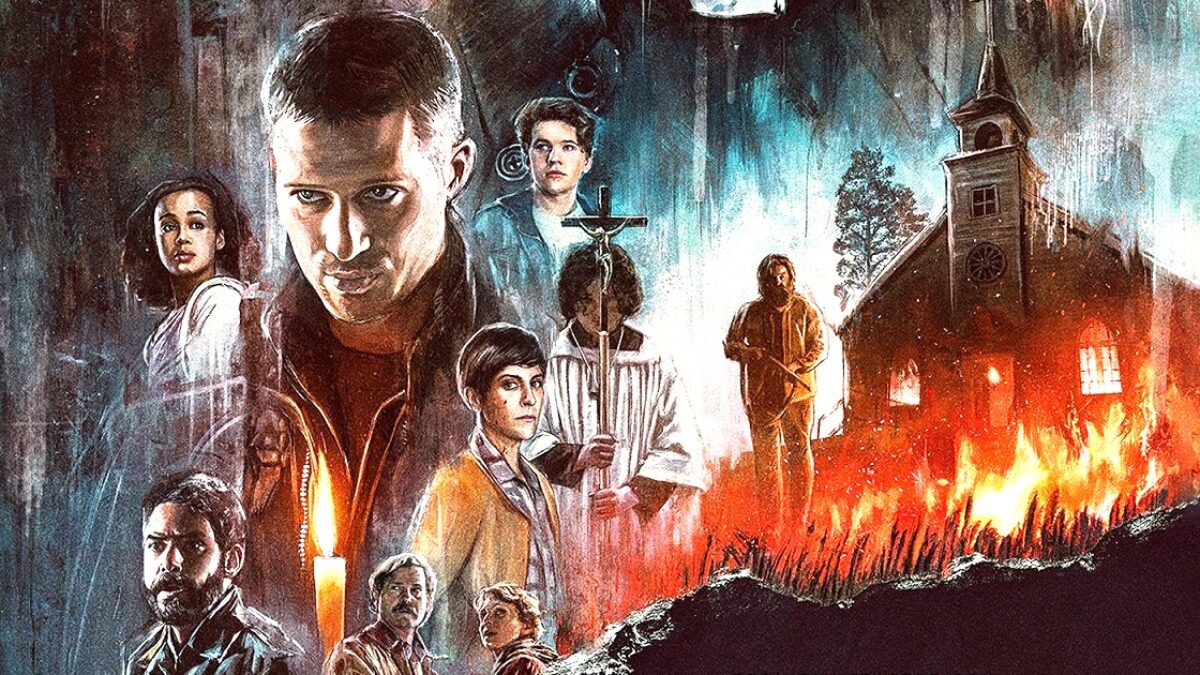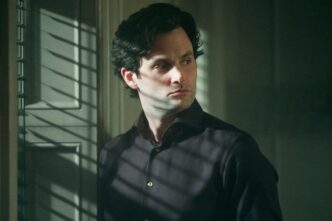Midnight Mass is Mike Flanagan’s (The Haunting anthology series, Doctor Sleep) latest horror offering, this time delving into religious horror. Flanagan has said that this is his most personal project yet, drawing from his own Catholic upbringing and how he drifted away from it in later years. The show has the unenviable task of walking the tightrope of appealing to both believers and non-believers. While there has been criticism from both sides of the aisle, the series manages to tell a redemptive, hopeful story about how faith can both bring comfort and lead you astray as others contort it for their own purposes.
Riley Flynn (Zach Gilford) comes back to his island hometown of Crockett Island after spending time in prison for killing a woman in a drunk-driving accident. He finds a kindred soul there in Erin Greene (Kate Siegel), someone he has known since childhood and has her own reasons for moving back to the island. At the same time, a charismatic priest, Father Paul (Hamish Linklater) arrives and demonstrates miracles for his congregation. As mysteries are revealed, the townsfolk are divided about whether the miracles are gifts or portents of something terrible.

It’s really the characters that make Midnight Mass work.
Riley is an atheist, which makes him stand out from the rest of the island. Sheriff Hassan (Rahul Kohli) and his son, Ali, are Muslims, and you get the feeling that the sheriff has to always watch what he says to the residents.
Bev Keane (Samantha Sloyan) is the chief antagonist of the show, although she is mostly a loyal follower. She has a superiority complex that she proudly puts on display, wrapped under the façade of religion. And then there’s Father Paul, played brilliantly by Linklater, who puts in a career-making performance.
Flanagan explores these characters mostly through lengthy monologues. In fact, there are so many of them that some viewers might get turned off by the show.
However, these monologues give fantastic material to the actors, and they explore themes such as different perspectives on death and institutionalized racism.
The slow burn nature of the show can take some getting used to, but the plot picks up surprisingly fast. The stakes keep escalating before culminating in a harrowing massacre during Easter Mass that is uncomfortably reminiscent of the Jonestown massacre. The show’s ending is dark, hopeful and emotionally intense, showing the good side of faith and how different interpretations can exist not only alongside each other, but in harmony. Another earlier high point that resolves a main character’s arc is also noteworthy.
Looking back, Midnight Mass feels endearingly human despite its supernatural trappings.
It shows how easily ordinary people can be led down dark paths, especially when they are led by seemingly trustworthy people in authority. It also shows the heroism and compassion of some of these people, and how they stood firm even in their last moments.
Midnight Mass is not as tightly paced as it could have been. Also, it forgives Father Paul too easily at the end, slipping his transgressions under the rug. Still, it’s as good a Mike Flanagan story as any other. Do give it a watch if you’re a fan of his earlier work- just know that this is a different kind of horror than The Haunting shows that hits just as hard.







